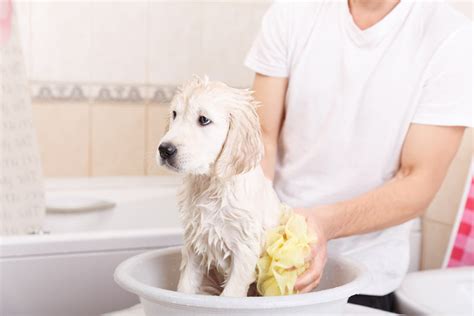Introduction
Your furry friend’s coat is more than just a layer of fur; it’s a reflection of their health and well-being. Proper pet cleaning and hygiene are essential for maintaining a healthy and lustrous coat, protecting your pet from skin irritation and allergies, and strengthening the bond between you and your beloved companion.

The Importance of Pet Cleaning
Regularly cleaning your pet’s coat provides numerous benefits, including:
- Improved coat health: Removes dirt, loose hair, and debris, promoting healthy hair growth and reducing shedding.
- Reduced skin irritation: Eliminates allergens, parasites, and bacteria that can cause itching and inflammation.
- Enhanced bond: Regular grooming enhances the bond between pet and owner, fostering a sense of trust and affection.
- Early detection of health issues: Cleaning and brushing can help identify skin conditions, parasites, or lumps that require veterinary attention.
Grooming Frequency for Different Coat Types
The frequency of your pet’s cleaning depends on their coat type and length. Here’s a general guideline:
| Coat Type | Grooming Frequency |
|---|---|
| Short and smooth | Weekly brushing |
| Medium-length and curly | Bi-weekly to weekly brushing |
| Long and thick | Daily to twice-weekly brushing |
Essential Pet Cleaning Tools
To effectively clean and maintain your pet’s coat, you’ll need the following essential tools:
- Grooming brush: Choose a brush appropriate for your pet’s coat type, length, and breed.
- Slicker brush: Removes tangles and mats from long-haired pets.
- Comb: Helps distribute natural oils throughout the coat and removes loose hair.
- Shampoo and conditioner: Use pet-specific formulas to avoid skin irritation.
- Towels: Absorb moisture after washing.
- Ear cleaning solution: For cleaning ear canals.
- Nail clippers: Trim overgrown nails to prevent scratching and injury.
Step-by-Step Pet Cleaning Guide
Follow these steps for a thorough and effective pet cleaning routine:
1. Brush Thoroughly
Brush your pet’s coat in the direction of hair growth using a grooming brush. This removes loose hair, dirt, and debris. For long-haired pets, use a slicker brush to detangle and remove mats.
2. Bathe Regularly
According to the American Kennel Club, most dogs should bathe every 4-6 weeks. However, the frequency may vary depending on the breed and skin condition of your pet. Use lukewarm water and pet-specific shampoo and conditioner to avoid drying the skin. Rinse thoroughly to remove any residue.
3. Clean Ears
Clean your pet’s ears regularly using an ear cleaning solution and a cotton ball. Avoid using cotton swabs, which can damage the ear canal.
4. Trim Nails
Overgrown nails can cause discomfort and pain. Use nail clippers to trim your pet’s nails regularly, taking care not to cut into the quick (the pink part of the nail).
5. Dry Thoroughly
Use clean towels to absorb moisture after bathing. Brush the coat while it’s slightly damp to remove any remaining water and prevent matting.
Common Coat Problems and Solutions
1. Shedding
Shedding is a natural process, but excessive shedding can indicate a health issue or inadequate grooming. Regular brushing and a balanced diet can help reduce shedding.
2. Matting
Mats are tangled clumps of hair that can be painful and uncomfortable for your pet. Daily brushing and detangling can prevent matting. If mats do occur, use a slicker brush or a professional groomer to remove them.
3. Skin Allergies
Skin allergies can cause itching, redness, and irritation. Identify the allergen and avoid exposure. Antihistamines or veterinary-prescribed medications may provide relief.
Tips for a Healthy Coat
- Feed your pet a balanced diet rich in omega-3 fatty acids, which promote a healthy and shiny coat.
- Provide regular sunlight exposure, as vitamin D supports skin and coat health.
- Massage your pet’s coat to stimulate circulation and distribute natural oils.
- Consider using a humidifier to prevent dry skin and coat.
Conclusion
Proper pet cleaning and hygiene are essential for maintaining a healthy and lustrous coat. By following the tips and guidelines discussed in this article, you can ensure your furry friend looks and feels their best. Regular grooming strengthens the bond between pet and owner, provides an opportunity for early detection of health issues, and promotes a happy and long-lived companion.
Additional Resources
- American Kennel Club: Dog Grooming Guidelines
- The Humane Society of the United States: Pet Grooming Basics
Reviews
- “This article has provided me with invaluable information on pet cleaning and hygiene. My dog’s coat is now healthier and shinier than ever!” – Sarah Johnson
- “I love the step-by-step guide. It made grooming my long-haired cat so much easier.” – Emily Rodriguez
- “The tips for a healthy coat are fantastic. I’ve been massaging my dog’s coat, and it’s made a huge difference.” – John Carter
- “This article has helped me identify and address my pet’s skin allergies. I’m so grateful for the knowledge it has provided.” – Jessica Garcia





















